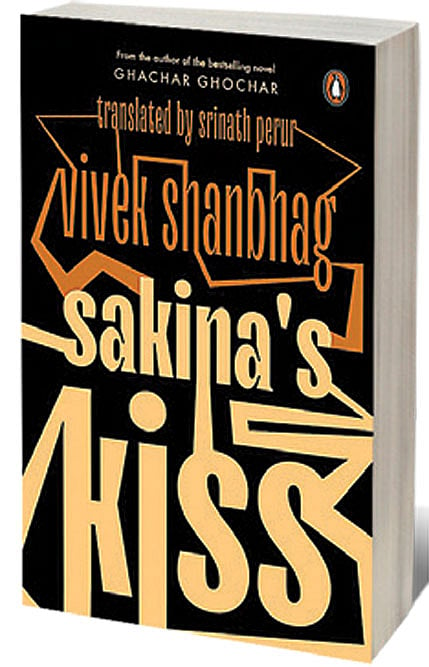Family Truths

ONE OF THE MOST appealing aspects of Vivek Shanbhag’s Ghachar Ghochar was its tone of voice. Unpretentious without being glib, and revelatory without being pedantic, it was the perfect vehicle to convey the ironies of gaining material wealth and navigating social change in modern India.
In Sakina’s Kiss, also translated from the Kannada by Srinath Perur, Shanbhag continues his exploration of the Indian middle-class psyche in the same style. The novel’s narrator is the middle-aged Venkat, who lives with wife Viji and college-going daughter Rekha in Bengaluru. Originally from a humble village in a corner of Malnad, he has worked his way up via an engineering degree and managerial job to become a member of a recognisable class. In his words: “We are a two-car household, even if they are small cars. We change our phones easily. We can go to restaurants and toss a card into the bill folder without thinking about it.”
As with Ghachar Ghochar, the prose blends the singular with the commonplace. While manoeuvring around a series of worrying incidents that befall him and his family, Venkat remains immersed in a domestic scenario of rasam on the stove, clogged kitchen sinks, cloth bags for milk hanging from the doorknob, and credit card statements, among other things.
The novel opens with a bang, or more accurately, a series of loud knocks on the family’s front door. Outside are two stooges who assert that Rekha is involved with the son of their head honcho, an influential and sinister character called Reporter Ranganna. Venkat and Viji are filled with consternation but, as their daughter is at present in the ancestral village home, they send the henchmen away with the assurance that they will investigate the matter.
Imran Khan: Pakistan’s Prisoner
27 Feb 2026 - Vol 04 | Issue 60
The descent and despair of Imran Khan
Pivotal to the novel are the shades of Venkat’s character, which emerge during his reminiscences about the past and dealings with the present. Cautious to the point of being paranoid and addicted to self-help books, he also displays a tendency to dominate, especially over his wife in the early days of their marriage. He likes to think of himself as superior to others, but while fond of liberal pieties on the surface, he is reactionary within. Rarely, there are glimmers of self-knowledge: “The [self-help] books feel like a desperate attempt to cover up defects within me, to compensate for something inside that was broken.”
The hypocrisies become more focused when it comes to his daughter. Blaming school policies for her independent ways, he thinks: “Ideas like liberal thinking and independent values are all very well in the abstract but when your child begins to rebel at home, they turn into hot ghee in the mouth—too good to spit out, too painful to swallow.” When she attends a women’s protest march, he is at first appalled but then mollified upon hearing that the classmate accompanying her is the daughter of a well-known businesswoman.
Venkat and Viji travel to the village to deal with their daughter where they find themselves caught up in another imbroglio, this one involving inherited property and unmet promises. The patriarchal roles of other family members are made clear with Venkat, as usual, trying to tolerate progressive views while remaining regressive.
The growing role of politics in buttressing the attitudes of Venkat and others is also touched upon. In the village, a journalist proclaims: “Is there any place today where politics hasn’t entered? That filth has sneaked into the kitchen, too.” Later, another character says: “If you want to escape politics you might as well stay at home and take to bed. It’s everywhere, even if you don’t see it.”
There are RK Narayan-esque ironies aplenty, many of them linked to the current moment. Speaking of his neighbour, for example, Venkat feels: “In his youth, D’Souza had worked as a supplier to a military canteen. This qualified him to hold forth whenever the subject of security came up, be it of the building or the nation.”
Shanbhag’s interest is not in neat resolutions and gift-wrapped conclusions. He creates situations to show how a bourgeois mindset negotiates with tradition in the face of systemic shifts. This approach, along with Shanbhag’s relaxed prose style, makes Sakina’s Kiss readable, relatable, and relevant.

